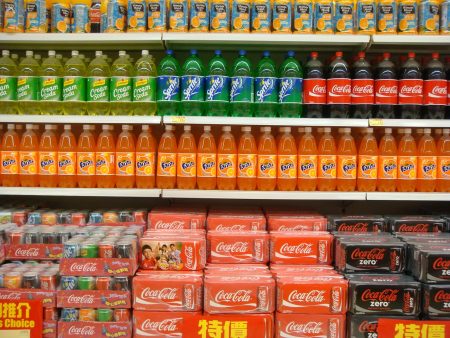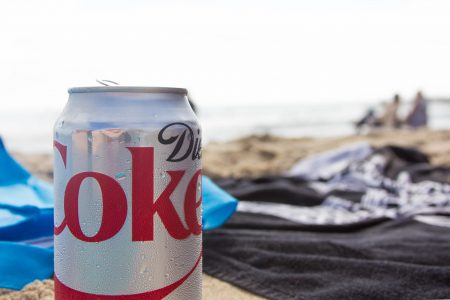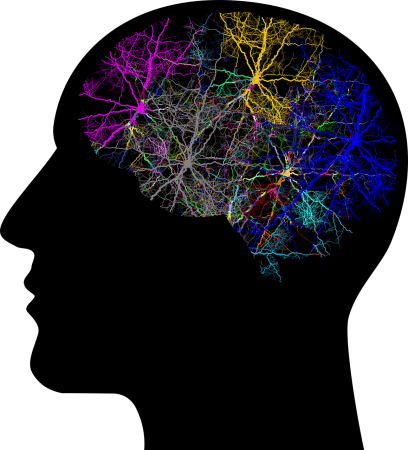Artificial Sweeteners Destruction
to Your Mental Health, New Study Shows
Updated on Jan 12, 2023.
Want more free and simple health and nutrition tips that can improve your life, sign up for my substack at https://trufoods.substack.com
Artificial sweeteners are in more than just diet soda. They are in many processed products. When I point this out to clients, they are shocked as they thought they were eating healthier options. This is because they read only the front of the label and the big, bold writing.
But why should you avoid artificial sugars?
The Science
The science on the safety of artificial sugars is very mixed. You can find past studies to support fake sugar use and studies that show the negative impacts of artificial sugars. To understand why there are so many conflicting reports, you need to realize that part of this is due to politics. An excellent article to read that explains how aspartame got approved for human consumption is https://functionaldiagnosticnutrition.com/the-dangers-of-consuming-aspartame/ Also, when doing your research, look to see who funded the study.
Aspartame has been reported to have over 100 side effects, many of which are neurological or related to impaired nervous system function. Aspartame was fully approved for consumption in 1983. By 1992, the FDA had received over 10,000 complaints of aspartame reactions from the people who reported their symptoms! (8)
Artificial sugars are in everything from your flavored water, protein powders, protein bars, keto bars, English muffins, Pedialyte, sports products, frozen meals, gum, candy, ice cream, yogurt, and supplements. I was in Walgreens and was going to buy some gum for my son just to put in his Christmas stocking, and I could not find any in this store that did not contain fake sugar!
The American Heart Association, The American Diabetes Association, and many dieticians approve of using artificial sweeteners to combat obesity, metabolic syndrome, and diabetes.
It isn’t helping.
One of the reasons I am not a massive fan of the Academy of Nutrition and Dietetics is this: they approve, for the average adult, 2.4 cans of 12 ounces each of soda per day. They also say that someone can safely consume 17 cans of 12-ounce soda with aspartame daily without adverse effects! They also state that a 50-pound child can safely consume .8 of a 12-ounce soda daily or 5.6 cans of diet soda! (9) Really-how is this healthy, and if they are consuming this, what does the rest of the diet look like?
It is making the problem worse. Consume artificial sugars, and you may find fruit less sweet and unappealing, and thus vegetables not tasty. This means you may continue to eat fake foods with fake sugar and avoid healthy, naturally sweet fruit and veggies. (yes, some veggies are sweet-think beets, carrots, and peas, for instance.) A study on atherosclerosis showed that daily diet soda consumption was associated with a 36% greater risk for metabolic syndrome and a 67% increased risk for type 2 diabetes (1).
We know that consuming artificial sweeteners doesn’t help us lose weight or the other issues associated with being overweight, but what does this have to do with mental health? Even if studies didn’t show that it impacts our neurotransmitters, as you will see, it impacts your mental health because you end up craving more sugar, more sweet foods, and less healthy whole foods. What you put into your body directly impacts your mood and mental health. Eat crap daily, day after day, and you will feel like crap, physically and mentally.
For me, it was easy to give up the fake sugars. I used to get headaches daily, and I drank diet soda daily (starting way back when the only diet option was TAB-anyone remember that diet drink?). It took quite a long time, but I finally figured out that Aspartame is a headache trigger for me.
Others may think they are symptom-free as it slowly destroys gut health. And many others don’t realize that they are substituting processed “low sugar” foods for healthy options. You may feel like you are making the right choices because marketing has to lead you to believe this. Again, some studies may say that it is safe to consume daily, but when you do so, the rest of your diet suffers as well.
And for others, the impact may be mental, impacting brain health, mental health, and neurotransmitter production. We are all biochemically unique and don’t all react similarly to the same exposure.
Artificial Sugar and its Impact on
Your Gut Health and Mental Health
Research continues to show that artificial sugars are toxic to the gut. All artificial sweeteners have been shown to have a toxic effect on the gut, making it difficult for gut microbes to grow and reproduce. (3). Your gut health is vital to every aspect of your overall health-everything from energy levels, mood support, immune system function, and obesity to IBS and IBD.
A recent study indicated that aspartame depletes neurotransmitters in the brain. (2) This study was done on rats for 10-40 days, then their brains were analyzed. What they found is that aspartame can destroy neurotransmitters (NTs). These NTs were significantly reduced as compared to the control group
Serotonin levels were reduced by roughly 74% in the rats that consumed 125 mg. of aspartame compared to the control group. Also, in the rats fed aspartame, their epinephrine levels were increased by almost 500%. This is your fight-or-flight chemical. You don’t want this reaction in your body always turned on.
And more research shows that if you already have depression, you should avoid artificial sugar because you are more susceptible to the adverse effects. One study showed that those who consume a diet high in aspartame had more depression, mood changes, and irritability and performed worse on spatial orientation tests. (12) Again, this was for those who consume high amounts of aspartame daily. But do you even know how much artificial sugar you consume daily?
Researchers from FSU College of Medicine have linked aspartame to anxiety in mice (Thomas, 2022). Not only that, but this result carried down two generations and possibly longer. This may be related to your gut health and how your gut health is not only dependent on your birth mother’s gut but also on your maternal grandmother’s gut health.
The study used a high dose of diet soda, equivalent to 6-8 eight-ounce cans daily for 12 weeks. Most people do not consume this much soda, but the study did not compare lower soda intake and anxiety.
What About Sucralose?
Okay, so maybe you have looked at the labels on your products and see that they contain sucralose, not aspartame. You think, phew, you are in the clear. Not so fast!
Sucralose has also been found to be damaging to the gut. (4) And if your gut health is damaged, so is your brain health, possibly via the gut-brain axis!
In a 2008 study, it was found that sucralose reduces gut bacteria by 50%. It is also absorbed into and accumulates in the fat tissue. The sucralose industry has stated that sucralose passes through the body unmetabolized and thus has no biological impact. But recent research shows that it is metabolized and does accumulate in fat cells. (4) And yet, another study done in 2018 showed that sucralose causes changes in the liver of rats. And like my headaches from aspartame, sucralose is also shown to cause migraines (4).
Common Artificial Sugars and
Names that You May See on the Packaging
There are over 6,000 packaged foods that contain fake sugars!
While there are other artificial sugars, these are the most common and may be hidden under other names.
Aspartame: NutraSweet, Spoonful, Canderel, Equal, NatraTaste Blue
Sucralose: Splenda, Zerocal, Sukrana, SucraPlus, Candys, Cukren, Nevella
Acesulfame potassium-K: Sunnette, Sweet One, ACE, Sweet ‘N Safe
Foods that Contain Aspartame
This is a short list, so always read the ingredient label! I have included some name brands but mostly product types in which aspartame can be hidden.
- Yoplait yogurt
- Children’s Advil, Jr, chewable
- Children’s Tylenol
- Pediacare
- Centrum Jr. Vitamins
- Mylanta sugar-free
- Metamucil sugar-free
- Alka-Seltzer plus nighttime cold medicine
- Bugs Bunny Vitamins (And many other children’s vitamins-read the label!)
- Infant Pedialyte, Pedialyte freezer pops
- Diet soda
- Sugar-free lozenges (not all, so read the label)
- Jelly, jams, and syrups that are labeled sugar free
- Many coffee creamers
- Kool-aid and crystal light powder drinks
- Most gums and mints
- Sugar-free Jello, sugar-free puddings
- Some breakfast cereals and breakfast bars
- Sugar-free ketchup
- Sugar-free ice cream
- Some ice-tea bottled drinks and packets
- Sugar-free cookies
- No sugar-added pies
(5, 6)
Foods that Contain Sucralose
The list is going to be like the above. Again, read the ingredient label. I found a good list of name brands that contain sucralose on http://www.stepin2mygreenworld.com/healthyliving/greenfoods/list-of-products-containing-sucralose/ However, her list is still not exhaustive, so still check the label.
Some (not all)
- Desserts, cookies, crackers
- frozen waffles
- Low sugar Ice cream
- Aloe drinks
- Ice tea drinks, coffee drinks
- Soups
- Sports nutrition powder supplements ( I found this in many sports products)
- Low sugar juices
- So -Be drinks (lean)
- protein bars
- Sugar-free syrups
- Some microwave popcorn
- Some low-calorie English muffins
- chewing gum
Diet Soda: Know the Risks
- Contributes to metabolic syndrome: weight gain around the middle, high blood pressure, high cholesterol, and high blood sugar. Diet soda is associated with increased heart disease risk.
- Risk of kidney disease with 2 cans per day
- Risk of the leaky gut syndrome
- Obesity risk is more significant with the more you consume
- Acidic: affects Ph level in the body; the body wants to be neutral, not too acidic or too alkaline. Too acidic leads to disease and chronic inflammation.
- High in phosphorus: type in soda is acid and can weaken bones
- High BP: associated with one can per day
- GERD: diet soda and any carbonated beverage can cause acid reflux for some, especially in high amounts.
(7,10, 11)
Bottom Line
If you have a mental health issue, you would be wise to get all fake sugars out of the diet. This means reading labels and avoiding these food products. Swap for healthier options. For instance, try xylitol gum, honey, or maple syrup as natural sweeteners and heavy cream instead of creamers. There are many protein bars and protein powders that do not contain artificial sugar. Drink water, kombucha, herbal tea instead of juices, bottled teas and coffees, and so forth. Even if you have no issue with artificial sugars now, they can slowly, over long-term use, impact you. Even if you read the studies and conclude that it is safe for human consumption, the bottom line is that fake food disrupts your taste and can lead to eating more sugary and processed foods and avoiding healthy food options. If you want to feel better or start to eat healthier, you need to get the fake sugars out of your diet.
I recommend watching Sweet Misery: A Poisoned World to learn more about aspartame. The good news is that when you take the fake sugars out of the diet, you can then start to restore your gut bacteria.
As a side note, some have asked me about a new sugar called allulose. Currently, this is primarily seen in keto protein bars. As far as I can tell, it is safe to use. If you eat keto bars with allulose or other products containing allulose, I would still limit the use of these products. Whole foods are always the better choice!
Sources
- http://care.diabetesjournals.org/content/32/4/688
- http://journals.sfu.ca/africanem/index.php/ajtcam/article/view/4861
- https://www.businessinsider.com/artificial-sweeteners-aspartame-and-sucralose-damage-gut-bacteria-e-coli-2018-10
- https://articles.mercola.com/sites/articles/archive/2018/09/05/artificial-sweetener-splenda.aspx
- https://deeprootsathome.com/products-contain-aspartame/
- https://www.mindbodygreen.com/0-8075/can-you-avoid-the-evils-of-aspartame.html
- Bauman, E. & Friedlander, J. (2014) Foundations in Nutrition. CA: Bauman College.
- https://functionaldiagnosticnutrition.com/the-dangers-of-consuming-aspartame/
- https://www.tuv.edu/content/health/science-behind-artificial-sweeteners/
- https://www.nature.com/articles/nrendo.2014.167
- https://www.nature.com/articles/ejcn201247
- https://www.ncbi.nlm.nih.gov/pubmed/24700203






Leave A Comment
You must be logged in to post a comment.